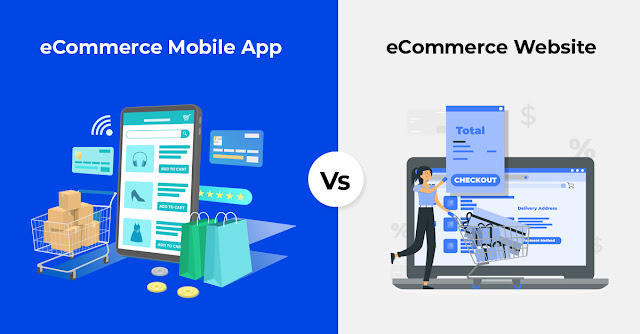How to Choose the Right Mobile App Development Company
Choosing a Mobile App Development Company isn’t just about ticking boxes it’s a major decision that could shape the future of your business. Whether you're building an app to boost revenue, engage customers, or strengthen your brand, your development partner will have a huge impact on your app’s success.
But with so many companies out there promising the best results, how do you decide who’s the real deal?
This guide will take you step-by-step through everything you need to consider to find the perfect match for your app development journey Through Mobile App Development Company.
Here Are Some Points for How to Choose the Right Mobile App Development Company
Step 1: Understand What You Really Need
Before you reach out to anyone, get clear on your app’s purpose.
Define Your Business Goals
What are you trying to achieve? Increased sales? Better customer service? A new platform to reach your audience? Having a clear vision will help your development partner align their work with your objectives.Know Your Audience
A great app connects with its users. Share who your target users are, what they like, and what problems they face. This info helps developers tailor the app experience.Choose Your Platform
Decide whether you want an iOS app, Android app, or a cross-platform solution. A good company will help you weigh the pros and cons based on your audience and budget.List Must-Have Features
Write down your core features (and some optional ones). This gives developers a solid foundation for planning timelines and costs.Step 2: Set a Realistic Budget and Timeline
Understand What Drives the Cost
Features, platform, design complexity, backend needs, location of the development team, and their expertise all of these impact the final price.Plan Your Timeline
Break your timeline into phases design, development, testing, and launch. Leave room for unexpected delays so you’re not caught off guard.Step 3: Start Researching Development Companies
Now it’s time to explore your options.
Use Review Platforms
Websites like Clutch, GoodFirms, and LinkedIn offer detailed client reviews. Focus on verified feedback to get the real picture.Ask Around
Personal recommendations from people you trust colleagues, partners, or business communities can save you time and effort.Step 4: Evaluate Their Experience and Expertise
Look at Their Track Record
How long has the company been in business? More years usually means more mature processes and stability.Check Industry Experience
If they’ve worked with clients in your sector, they’ll better understand your audience, compliance rules, and challenges.Step 5: Review Their Technical Skills
Your app is only as good as the technology behind it.
Technology Stack
Ask what technologies they specialize in Swift, Kotlin, React Native, Flutter, etc. and which one suits your project best.Backend & Integrations
A great front-end is nothing without a strong back-end. Make sure they handle APIs, databases, and third-party integrations well.Step 6: Browse Their Portfolio & Case Studies
Relevant Projects
Have they built something similar to what you're envisioning? Seeing past projects helps you understand their capabilities.Results That Matter
Look beyond just the visuals. Did their app generate downloads, improve customer engagement, or boost business growth?
Step 7: Communication & Project Management
You’ll be working closely so how they communicate matters.
Quick and Clear Responses
If they’re responsive during the sales phase, they’ll likely stay that way during the project.
Project Tools
Ask if they use tools like Trello, Jira, or Asana to manage tasks and keep you informed every step of the way.
Step 8: Ask About Post-Launch Support
Launching your app is just the beginning.
Ongoing Maintenance
Will they help with updates, performance tuning, and bug fixes? Regular maintenance ensures long-term success.
User Feedback Loop
Do they help you turn user feedback into meaningful improvements?
Step 9: Don’t Ignore Security
Data Protection
Inquire about how they handle security encryption, secure coding, authentication, and so on.
Compliance with Laws
Make sure they follow local and international laws (like GDPR or HIPAA) if your app deals with sensitive data.
Step 10: Understand Their Process
Development Methodology
Do they follow Agile (flexible, iterative) or Waterfall (structured and step-by-step)? They should adapt to your needs and project complexity.
Clear Milestones
Expect them to outline a development plan with specific deliverables at each stage so you always know what’s next.
Step 11: Consider Customization & Growth
Scalability Matters
Your app should grow with your business. Choose a company that builds apps designed to scale.
Tailored Solutions
Avoid “one-size-fits-all” approaches. Your app should reflect your brand and offer unique functionality.
Step 12: Compare Cost vs. Value
Transparent Pricing
Get a detailed quote with no hidden costs. Everything from design to post-launch should be covered.
Think Long-Term
A higher initial investment in a quality app often saves money in the long run through fewer issues and better performance.
Step 13: Cover Legal Ground
Intellectual Property
Ensure you fully own your app’s source code and related assets once the project is done.
Contracts & NDAs
Professional companies won’t hesitate to sign NDAs or formal contracts to protect your idea.
Step 14: Interview & Final Decision
Ask Smart Questions
What’s their team structure? How do they handle challenges? What’s their typical turnaround time?
Check for Cultural Fit
Good chemistry makes collaboration smoother. Make sure your working styles and values align.
Conclusion
Choosing a Mobile App Development Company isn’t just a technical decision it’s a strategic one. The right partner can transform your idea into a successful digital product that grows with your business.
Take your time, do your homework, and partner with a company that’s genuinely invested in your success. A great app isn’t just built it’s carefully crafted with expertise, vision, and collaboration.
FAQs
1. What should I look for when hiring a Mobile App Development Company?
Experience, technical skills, honest pricing, proven portfolio, and strong post-launch support.



Comments
Post a Comment